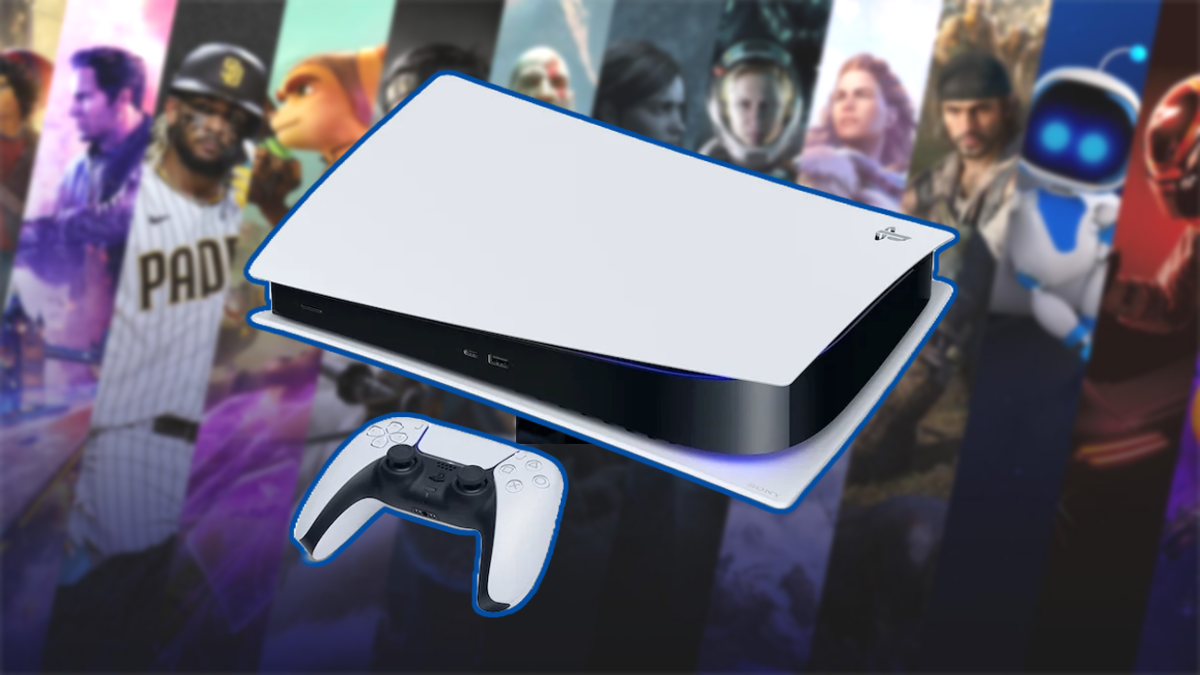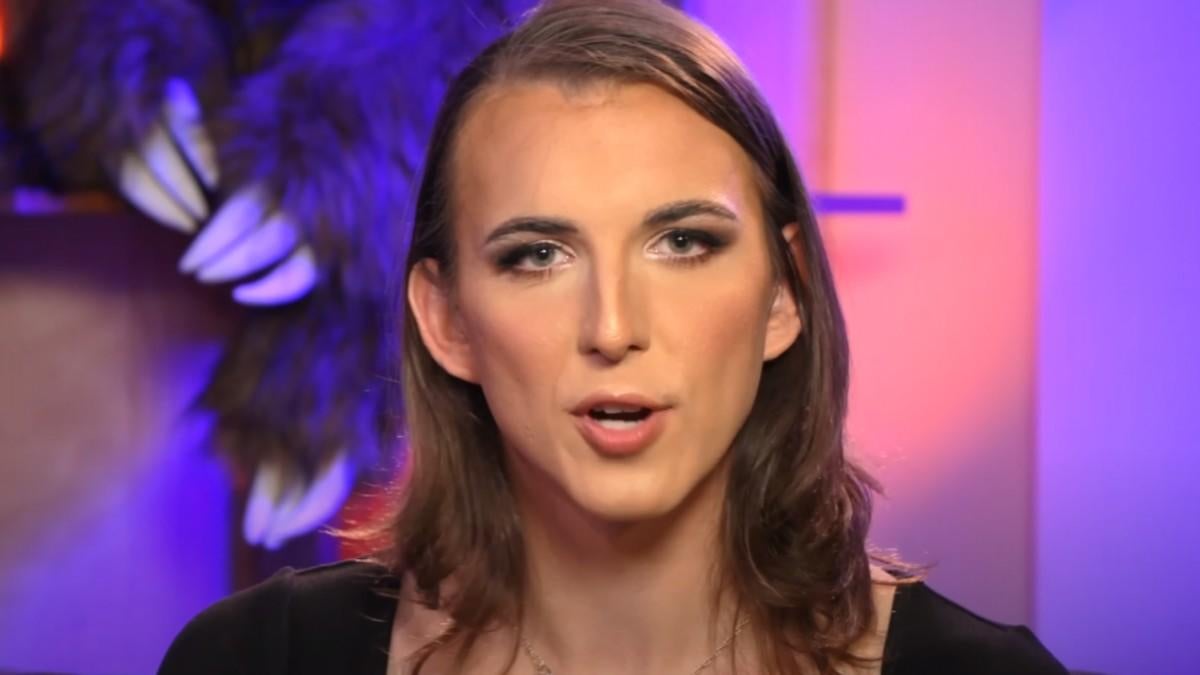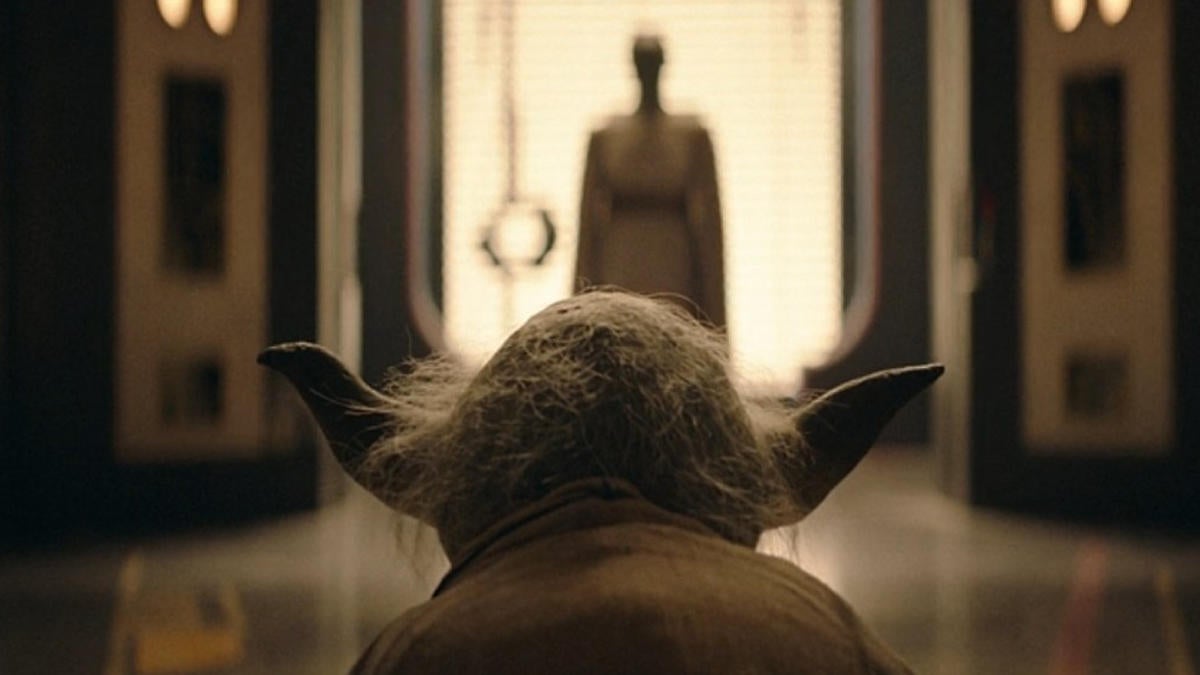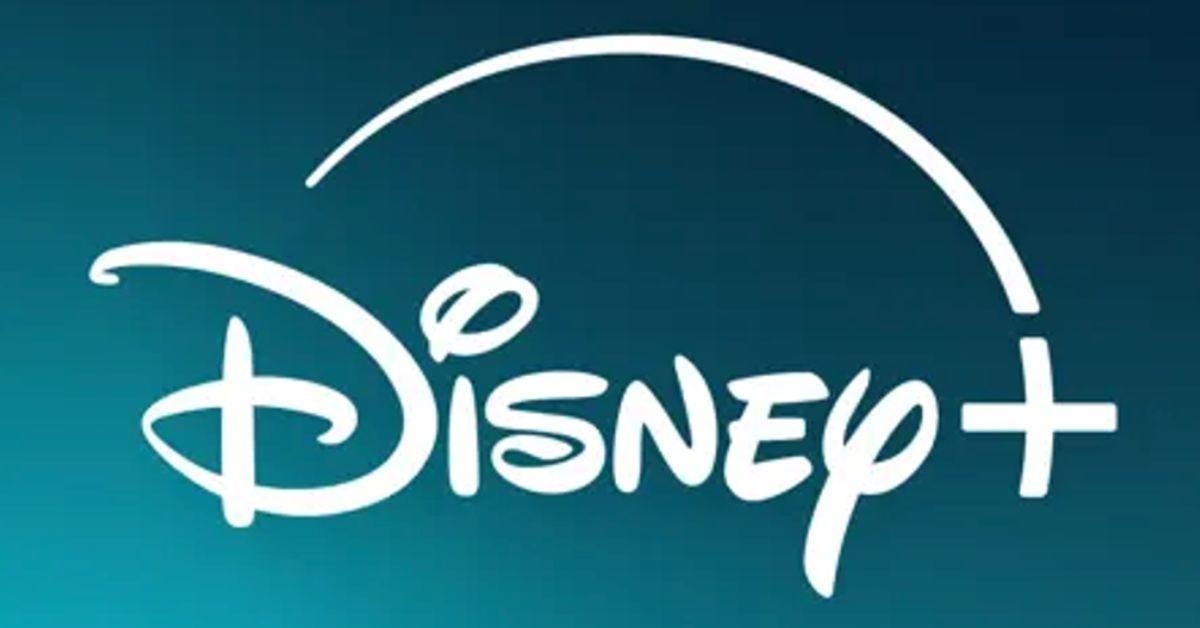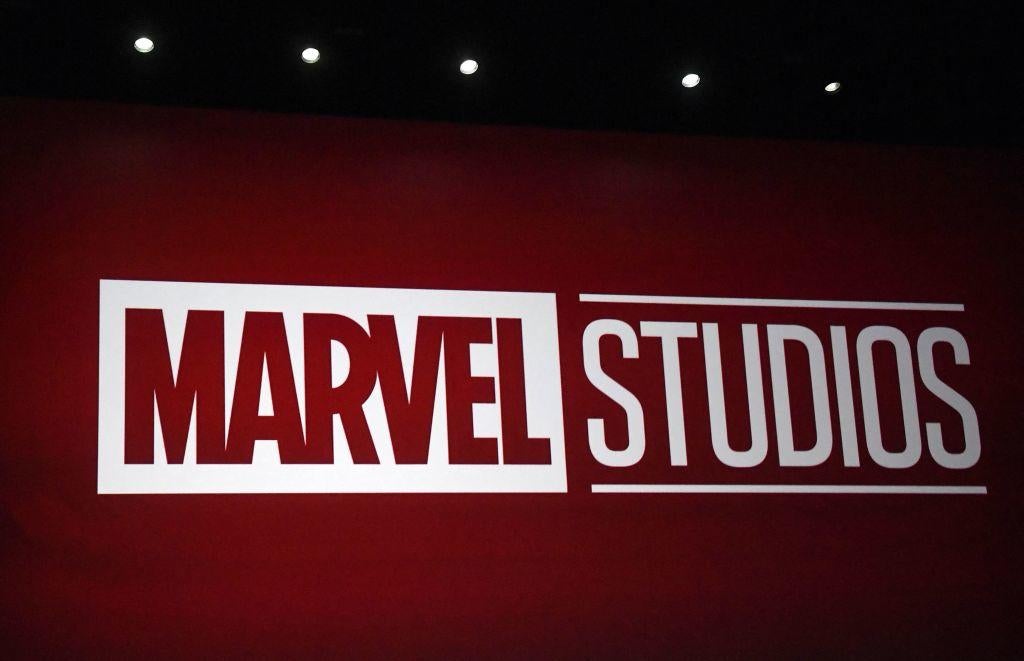Run-DMC's Darryl McDaniels And Writer Edgardo Miranda-Rodriguez On Darryl Makes Comics
This week saw legendary hip-hop artist Darryl 'DMC' McDaniels publish his first-ever Marvel Comics [...]

This week saw legendary hip-hop artist Darryl "DMC" McDaniels publish his first-ever Marvel Comics story -- a backup feature in Guardians of Knowhere co-written by his friend and Darryl Makes Comics collaborator Edgardo Miranda-Rodriguez.
...Wait, what?
Yes, for those of you who don't know, Darryl McDaniels has already been in comics for a while. His Marvel detour aside, he's been self-publishing Darryl Makes Comics (DMC for short, obviously), a story that follows an alternate-reality version of McDaniels who decided to become a costumed crimefighter rather than joining up with DJ Run.
Recently, McDaniels and Rodriguez joined us to talk about the series, with #3 on its way soon.
First thing's first: one of my best friends in the comic business, Adam P. Knave, was talking to me earlier and I said "Hey, I'm talking to Darryl, do you want to throw in a question that I can ask during the interview?" And he's just like, "ARE YOU KIDDING ME? I GREW UP IN NEW YORK IN THE 70s AND 80s! OF COURSE I WANT TO ASK A QUESTION!"
Darryl McDaniels: Oh my goodness. What was his question?
Well, you guys -- Run-DMC -- had a really progressive kind of storytelling style in your old videos. He was wondering if that had helped you visualize the stories that you are writing for comics.
Darryl McDaniels: No, vice versa. Vice versa.
My whole presence, my whole existence, my presentation, my writing style, my delivery, my name, my title, my alter egos from Devastating Mic Control, to the Microphone Master to the King of Rock, is all because of comic books.
Comic books is and was my first love before hip-hop came over the bridge from the Bronx to Queens, because from kindergarten, I started reading comic books in kindergarten and my brother, he introduced it to me.
He was a big ... He was a DC guy because he was into The Green Lantern and the Justice League. I think my first comic book ever, I think, was a Batman, or something like that. That being said, once I noticed that once a week my brother goes down to the candy store, Willoughby's, and he buys these comic books, so I would save my allowance to buy my own comic books and this was like first or second grade. I would go with my older brother to the candy store and I got into Marvel, because what I liked about Marvel was ... DC was cool. Gotham and Metropolis was fictional, but Marvel ... Stan Lee really has superheroes running around New York. I'm from New York, so Marvel comic books was educating me on places that really existed in the world that I lived in, but I couldn't go to.
That being said, I just became a crazy Marvel fan and from first grade to second grade to third grade, it was all stick figures. By the end of third grade, I was literally able to draw Captain America covers, Iron Man covers, so my whole existence was collecting comic books and drawing.
Even if you listen to "King of Rock," the Easter Eggs was always there. This is 1985, RUN-DMC's "King of Rock," what did I say? "Crash through walls, come through floors, bust through ceilings and knock down doors." Those are things that superheroes do.
I was the devastating, mic-controlling DMC, the Microphone Master DMC, because Marvel comic books taught me it is always adjective of description then who you are. The Amazing Spider-Man, The Incredible Hulk, so when I got into hip-hop, I was just pretending, this is crazy because I was just pretending that be the mightiest entity in this hip-hop universe.
Thor, he was the son of Odin, so I became son of Byford, brother of Al. Beth is my mother and RUN is my pal, it is McDaniels, not McDonald. These rhymes are Darryl's, those burgers are Donald's! I ran down my family tree. My mother, my father, my brother and me. Oh, unbelieving receiving prophecies so true, I cut the head off the devil.
Every rhyme, every record that I got on, I was pretending to be ... I want to hear a beat and go "Okay, what would the Hulk do in this one?" This beat I got to be Spider-Man on, so everything I became in hip-hop was because of my first love, comic books. I wouldn't have been DMC if ... I would have never got it ... RUN put me in a group. My confidence came from me pretending to write these mythological supernatural superhero adventures. All my records from "Hit It Run" to "Rock Box," to "King of Rock."
My writing, my presence, my ideas, my conceptualization, my vision, was me pretending to be the mightiest force in this hip-hop universe and when I go speak to kids, I tell kids "Your imagination is real. That image that you create of yourself will come into existence." That is why I am DMC, the King of Rock, the Microphone Master. It is all because of my first love, my inspiration, the motivation, the creativity and also the education that comic books gave me.
I was a straight A student. I went to Catholic school. I was this nerdy little kid, who was shy, that sat in the back of the classroom, who got A++++ on all my tests, but all other kids were like "There is something weird about Darryl McDaniels, the kid that sits in the back of the classroom, that wears glasses and reads comic books all day."
Even my teachers, even in the 70s, there was this thing with the educators. "Something wrong with the kids that read comic books. Don't let the kids read comic books. If you see a kid in your class with a comic book, take it away from them." See, the educators had it all wrong because I was READING! I was an exceptional student, stupid! You knuckleheads.
School didn't notice. You teach me about World War II in History, right? But when I go home, Captain America takes me there. You teach me about the planets and the comets and the rings of Saturn and the asteroids, but I go home and read my comic books, Silver Surfer and Galactus and the like, takes me there, so when you give me that test on Friday, I finish the test in five minutes, I'll look up at the teacher and say "What else you got for me? If you don't got nothing else for me, I am going back to reading my comic books."
The comic books was working my brain, working my imagination, allowing me to be educated easily and once you get into a creative zone, with these young productive minds, they are unstoppable and I am just a reflection of everything that a superhero in those comic books stand for. It all came true, so, for me, you can say us geeks and nerds are corny, but we are the most powerful beings on the face on the Earth that everybody, even Hollywood, want to be.
Look at the success that Marvel is having on the big screen. Well, us geeks and nerds know something. We don't need Hollywood to do what you all guys out there in the world to enjoy. I didn't need a movie screen, I had a comic book in the '70s when I was 8 to do what you are all doing now. What they are doing in Hollywood is nothing. There wouldn't be a Hollywood without us geeks and nerds, but that being said, to answer your friend's question, it was comic books first that allowed me to be not just a rapper.
See other rappers is "Oh, his is so a lot, he's dating a movie star. Oh, wow. He has a liquor company." I am the KIIIIIINNNNGGG OF ROCK for eternity in my confidence and my presence and my undefeatableness. My invincibleness in hip-hop, I don't care how long hip-hop is going to be around, until the Earth ends, then when you look in there people are going to say "DMC is like a superhero", that is because I am really a superhero, that is my joke.
You know, it's funny you talking about when you were 8. I think I was 8 or 9 when I discovered you guys from the Ghostbusters II soundtrack.
Darryl McDaniels: Oh, wow. Get out of here. You were eight when you discovered Run-DMC on the Ghostbusters. One of the things that Riggs and Ed always say is that "It is not a new thing that DMC, this hip-hop god, is doing comic books, because that is a little kid." Most peoples' existence as little kids is being built and formed and influenced by pop culture.
For me as a kid it was comic books, it was Bugs Bunny, Looney Tunes. You know what I am saying? It was I Dream of Jeannie. Every kid watched I Dream of Jeannie, so you could look at Jeannie in her genie suit. The Munsters, Lost In Space, Star Trek, Mickey Mouse, Disney World, and just like the Wu-Tang Clan made it known, kung-fu movies.
Before kung-fu movies, it was comic books, then came Bruce Lee and Jackie Chan and all the kung-fu movies, but that pop culture creative, scientific, cartoon, Saturday morning, Abbot and Costello, you know the old monster flicks of Lon Chaney Jr. as the werewolf of Bela Lugosi. All of those Hollywood monster flicks, Godzilla, King Kong vs Mothra, the Sunday funnies newspapers. That was a part of my existence and as being a little kid growing up in Harlem, Queens, New York.
The thing that made comic books so cool is it was science fiction, it was current events, it was supernatural. For me as a little kid growing up, the same way people say "Yo, DMC, we heard Run-DMC's music, we felt empowered." My empowerment that empowered me came from those comic books, so the feeling that I had from being a comic book kid that loved to draw all my favorite superheroes, when it was time for me to tell my story, my stories would be told in the same powerful vein as that.
It is so funny that about 15 years ago, Rolling Stone magazine did an article and it was called "Run-DMC, What Is the Big Deal?" My fellow rappers, musicians, critics, journalist, historians, anybody who was anybody was asked. "What do you like about Run-DMC? What is the big deal with these guys?" Chris Rock said these words, he said this, this is funny, he says "Yo, Run and Jay were cool, but DMC was my favorite. He was my superhero. The way he looked, the way he sound, his delivery and his presence.", and I said "Oh, my God. I have been discovered because this hip-hop thing really is a cover because in real life I am really a superhero."
When he said that, he felt that spirit that I was getting from my comic books. Some of the best rappers in the game, Rock Kim, Cool G Rap, Freddie Fox, BJ Premier, they say "You know, Eminem, Jay-Z, all those guys are dope, but DMC, yo, there was something about your delivery and presence that made me superhuman."
I am telling you that creative, educational, conceptual idea visualization, that I got from comic books, allowed me to, still at this day, be one of the dominant forces in hip-hop ever!
Edgardo Miranda-Rodriguez: The funny thing about D is when you talk about hip-hop, when you talk about AMC or Take the Stage, they all, whether they all admit it or not, every last emcee, man or woman, takes the stage and adopts a persona.
They are not this mild mannered self that they are at home with their family, they are somebody completely different when they take that stage. They don't go by their regular name. It is not Darryl McDaniels, it is DMC. Not Marshall Mathers, it is Eminem, but the thing with DMC when he takes the stage, he doesn't go on stage and say "I'm going to pretend to be this big monster of a drug dealer, or a huge power controlling gangster lord." No, he actually went on stage and said "I am going to take this mic like the Incredible Hulk and smash through floors and bust through doors!", and it was the reality.
He gave himself the adjective The Devastating Mic Controlling DMC, because he was inspired by the adjectives that every superhero had. The Incredible Hulk, The Invincible Iron Man.
A lot of people would ask us "Why are you getting into comics?" It is not like ... We are not making sneakers, we are not making a cologne, we are not putting out a clothing line, we are making comic books, because that is something that we have been a part of our entire lives. It is part of our identity.
Now, we both grew up in different parts of New York City. I grew up in the South Bronx, D grew up in Queens, Riggs grew up in Washington Heights, but to escape this harsh New York City reality that we were living in, we literally escaped into the pages of Marvel comics.
It was actually the first introduction of storytelling and mythology to young, working class, poor people in New York City. It was our accent. If you think about it historically, you know about this Russell, working class people created comic books.
Guys like Stan Lee and Jack Kirby and their families came to the country as immigrants, they created comic books and it was the generation after that that would have looked to comic books for the same reason as the new Americans that would come in.
For us to be making comic books now, we are kind of like following in the legacy of Stan Lee and Jack Kirby and all these other giants that came before us because they were, in essence, our mentors. They were, in essence, were the ones that gave us a foundation to become who we are in life. That is what I said all the time.
If people think about hip-hop, they think that the only way to succeed is to become an emcee and he always reminds young people, when we do public speaking, you can be the hip-hop lawyer, you can be the hip-hop filmmaker, you could be the hip-hop journalist. With me, I am the hip-hop art director. Darryl, he is the Definitive Music Executive. It was an opportunity for us to give an homage to comics, so when we started making these books, it was so important for us to be taken seriously.
When hip-hop first came out, hip-hop artists to be taken seriously? They literally sold their own mix tapes out of the trunk of their car and that is exactly what we have been doing for the last two and a half years. Selling our comic books at Comic Con.
We don't go in with a big, shiny, over the top booth on the main convention floor, we set up a little, modest table and artist ad next to every other artist, and next to every other writer because we wanted to show the fans, also other creators, that we are just like them and we want to be taken seriously as creators.
We are not in there to bring in people dressed in tight clothing and fancy outfits to pretend that we are into comic. No, we're here because we love the storytelling of comics and all of us are parents, so a lot of our responsibilities as parents translates into our storytelling.
We grew up on comic books that didn't pander to us. When Chris Claremont wrote these incredible new stories, he didn't do so in a kind of like "Oh, let me write something for the little kids to understand." He dove into heavy topics without having to talk down to people.
We said, with our comics, "Well, let's go back to that.", and a lot of the writers we work with are like "Wow, you guys kind of have this old school, kind of like Lee and Kirby way of telling stories," and we do. We meet, we brainstorm on ideas, we hash out a storyline we attach each other. "No, no no! Let's take that out, let's put this in! No, no! Put that back in. No, this person has gotta die! No, we got to save that person!"
We bring in someone like Greg Pak, who loves us and we love him because he is an amazing writer, but he produces for Pak's stories and he takes our ideas and he hashes them and says "Alright guys, I took all these crazy ideas that you had and I have given them a great outline that the next writer will be able to work with."
The next writer that we worked with Amy Chu and she knocked it out of the box. She even came through with some great idea and turns it...
One of the main parts of our stories is "Let's bring New York into it, but let's bring OUR New York into the storytelling," which means not everything has to happen in midtown Manhattan. Everything can happen in the South Bronx, or the Lower East Side, or in Queens.
So we add some of the other elements to our stories. When we do public speaking, we find that from children under there age of 10 to adults in their 60s, see themselves and we weren't doing that with that intention, but they see themselves.
They ask us why we are doing diversity in comics and we are trying to keeping up with the trends, but for us, diversity is organic to our being. If you follow the origins of hip-hop, it was always a mixed crowd. It was not a black thing and the music industry had its choice that it makes you believe that it is a black music...
Darryl McDaniels: When RUN-DMC first started off, "Rock Box," "King of Rock" and even with "Raising Hell," people was calling it black ghetto music and it wasn't it. It was Latino, there was Asian kids, there was a couple of white boys that lived in the hood and we just want to make that. Our universe that is in the book, is the real universe that has been in existence since me, Ed and Riggs were born.
One of the things that is really ... You talked a little bit about this, about taking it to New York specifically, but what went into the decision to really making it Darryl? To literally saying "Okay, I am a superhero now," rather than just coming up with a superhero?
Edgardo: Well, the thing is Darryl always had that idea, because everyone always told him he looked like a superhero, should be a superhero. After Darryl cleaned up his act, gave up drinking, he cleaned up his health and he started working out. He is the epitome of physical health right now. You look at him, he looks like a freaking action figure. I've always got to tell him not to crush my hand or crush my rib cage when he hugs me, but he is the epitome of health.
And also from a business perspective, Darryl's attitude is like "Look. I already know that I am an icon and I am a recognized brand. If we create a universe and a character around me, then we could tell stories about other characters," which is exactly what we are finally doing with our second book, because we know people are going to come up to us at a convention because they want to meet DMC. We know that, but that is the bait. That is the bait, so we can actually expand on a larger universe by introducing other characters beyond the DMC character.
In terms of even the way we designed the way that DMC was even going to look like, that was very intentional. You see, a lot of comic book artists created, up until recently, they finally took Superman's underwear off , Captain America's pirate boots off, they finally did that. That was literally just a few years ago, but the reality here is that our cultural references was the b-boys thing.
We weren't influenced by pirate films or by wrestling the way generations before us, we were inspired by the b-boys theme, so our superhero needs to reflect that. Our superhero would have variations of track suits, would wear sneakers, would wear hip-hop gear, but in a way that is realized that they still look like a hero, still looks like a superhero.
It is very much like Spider-Man in the sense that his entire face is covered so almost anybody can stick themselves into this character and relate on a very visceral level. Is that intentional?
Edgardo Miranda-Rodriguez: Yeah, I think that was intentional. The thing is, Darryl always said from the beginning "I had not always envisioned becoming an MC. I grew up in a middle class family, my mom and dad raised me to live a successful life keeping education in the forefront. I would have probably continued my education at St. John's and become an English teacher because I have always loved writing." So he said, "Why don't I do that in an alternate reality?"
It was very clear he wanted two different Darryls. He wanted Darryl in the costume as the MC and then the Darryl to be in the classroom as Darryl McDaniels, and the Darryl that is the MC is actually inspired by, in terms of his personality, inspired by DMC the way he was on stage.
D, tell them what your first publicist used to say about you.
Darryl McDaniels: Yeah, that is another crazy thing. Yeah.
My first publicist -- I'm talking about, this is my first publicist from like '83, '84. He said, in '85 or something, "It is amazing to watch ..." And these are his words, this is crazy. He said "It was amazing to watch mild-mannered Darryl McDaniels, Catholic school kid from Harlem, Queens, New York, transform into the mighty King of Rock."
When we was doing this...when we were coming up with the idea for the superhero, we were like "Yo, when DMC isn't the superhero, he is going to be teaching in the school. English, which he was already good at, but when he transform into this DMC character, people only knew who I was when I did my records. It wasn't until after Jam Master Jay passed away where people started hearing me talk. Why?
Run used to do all the talking. All I had to do was show up, get on stage, bust your head open, then I go back into obscurity. It wasn't until after the group ended that I started giving my opinion on social things and stuff like that, so we said in the other universe, in the comic universe, it is going to be Darryl McDaniels, but it is not going to be the rapping Darryl McDaniels, because, in that universe, I never meet Run. I never become a rapper.
It is hip-hop, it is pop, it is metal, it is punk. All of those creative genres are there, but Darryl McDaniels is just a guy that gets up every morning and goes to teach the kids in school because he feels that he could make a difference.
Edgardo Miranda-Rodriguez: Then the DMC character, as a superhero, he is going to be quiet. He is not going to be talkative. He is not going to be like Spider-Man, cracking jokes, distracting the villains, he is just going to let his actions speak for himself and, in a way he is leading by example.
One of the things that were trying to do as a huge push forward is that we are literally showing, in the series, that he is literally inspiring new movement of superhero. A new movement of heroes. He is actually inspiring young people from all over the city who are pretty much on the outskirts, on the margin, marginalize you, that they have the power within themselves to be heroes. They are not superheroes because they have superpowers, they just have self-determination and the will to want to have their communities better.
It is kind of like in reality what Darryl does and dedicates much of his life, in reality right now, to philanthropic work and a lot of the work he does with foster children because he does believe in the true potential that children have to transform their lives to do something positive with themselves and not just let the way they were brought not this world determine what the rest of their life would be.
Darryl McDaniels: And that's what hip-hop is, exactly.
